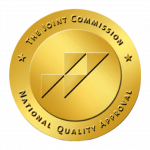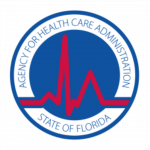In the United States, mental illness is far too common. According to a 2020 study by the National Institute of Mental Health, nearly one in five US adults are living with a mental illness (52.9 million). Mental illnesses include many different conditions that vary in degree of severity. Some illnesses are mild, while others are severe. The Harm Reduction Center is an addiction and mental health treatment center located in South Florida. Our team has compiled some of the different types of mental illnesses and a brief explanation of each.
Anxiety Disorders
One of the most common types of mental illness is anxiety disorders. People with anxiety disorders experience fear, dread, physical indications of worry, or panic in response to certain objects or circumstances. This can include a racing heart and sweating. With anxiety disorders, the way a person responds or reacts to a situation is not appropriate or over-excessive for the specific scenario. As well as the inability to control their response, interfering with the ability to operate normally.
Some of the main examples of an anxiety disorder include:
- Generalized anxiety disorder
- Panic disorder
- Social anxiety disorder
- Particular phobias
Mood Disorders
Mood disorders, or affective disorders, occur when individuals experience chronic feelings of sadness, moments of excessive happiness, or mood swings. Varying from extreme happiness to extreme sadness. Some of the most common mood disorders include:
- Depression
- Bipolar disorder
- Cyclothymic disorder
Psychotic Disorders
Psychotic disorders are characterized by altered awareness, as well as thoughts. The two most common psychotic disorder symptoms include hallucinations and delusions.
- Hallucinations: the perception of unreal pictures or sounds, such as hearing voices.
- Delusions: incorrect fixed beliefs that the ill person accepts as true despite evidence to the contrary.
Schizophrenia is an example of a psychotic disorder where an individual experiences both hallucination and delusions.
Eating Disorders
Eating disorders are characterized by the severe weight and food-related emotions, attitudes, and actions. An individual with an eating disorder commonly has body dysmorphia, as well as having a negative view of food. The most common eating disorders include:
- Anorexia: occurs which is when a person won’t eat because they are terrified of gaining weight.
- Bulimia: occurs when a person consumes a normal amount of food and throws it up right after.
- Binge eating: occurs when a person overindulges in one sitting and can’t help the excessive amount of food they eat.
Impulse Control and Addiction Disorders
People who suffer from impulse control issues are unable to resist the urge to do things that are potentially harmful to themselves or others. For example, stealing from a store with high security. Impulse control disorders include:
- Pyromania (starting fires)
- Kleptomania (stealing)
- Excessive gambling
When it comes to addiction disorders, alcohol and drugs are common objects. People with these disorders frequently become so engrossed in their addictions that they neglect their obligations and relationships.
Personality Disorder
Personality disorders are long-term patterns of behavior and inner experiences that differ significantly from what is expected. This disorder can also cause issues at work, school, or in social relationships. Furthermore, the person’s thoughts and behavior patterns are significantly different from societal standards. They are so inflexible that they interfere with the person’s regular functioning.
Some of the main personality disorders include:
- Antisocial personality disorder
- Obsessive-compulsive personality disorder
- Histrionic personality disorder
- Schizoid personality disorder
- Paranoid personality disorder
Obsessive-compulsive Disorder (OCD)
Obsessive-compulsive disorder (OCD) is a mental illness characterized by recurrent unpleasant thoughts or feelings (obsessions) or a strong need to repeat a behavior (compulsions). Obsessions are uncontrollable ideas, and compulsions are rituals. Furthermore, those suffering from OCD are troubled by intrusive thoughts or concerns, which leads to executing certain rituals or routines.
An example of OCD behavior is someone who washes their hands over and over again because they have an extreme fear of germs.
Post-traumatic Stress Disorder (PTSD)
PTSD is a mental health condition that develops from a traumatic or scary event. For example, sexual or physical assault, death of a loved one, living through a natural disaster, or war. Some of the symptoms experienced by a person living with PTSD include flashbacks, nightmares, and acute anxiety, as well as uncontrollable thoughts about the event. These symptoms can lead to anger, aggression, isolation, or numbness from specific situations or the outside world.
Dissociative Disorders
Memory, consciousness, identity, and general awareness of oneself and one’s environment are all severely disrupted or altered in people living with dissociative disorders. Traumatic events, accidents, or disasters, whether experienced or witnessed by the individual, cause extreme stress which is linked to these disorders.
Some of the examples of dissociative disorders include:
- Dissociative identity disorder
- Multiple personality disorders
- Split personality disorder
- Depersonalization disorder.
Tic Disorders
People with tic disorders make repetitive, fast, sudden, and/or uncontrollable sounds or non-purposeful body motions and twitches. Tourette’s syndrome is a type of tic disorder that causes these random and uncontrollable tics.
Get Help Today
When it comes to the different types of mental illness the list seems to go on and on. Living with a mental illness or disorder can be really hard to deal with or manage. However, there is hope. The Harm Reduction Center is a private health care facility that offers all levels of treatment services for mental health. We understand that mental illness can take you to a dark place, but we make it our mission to provide the resources needed to each and every individual who walks through the door. Contact us today!














